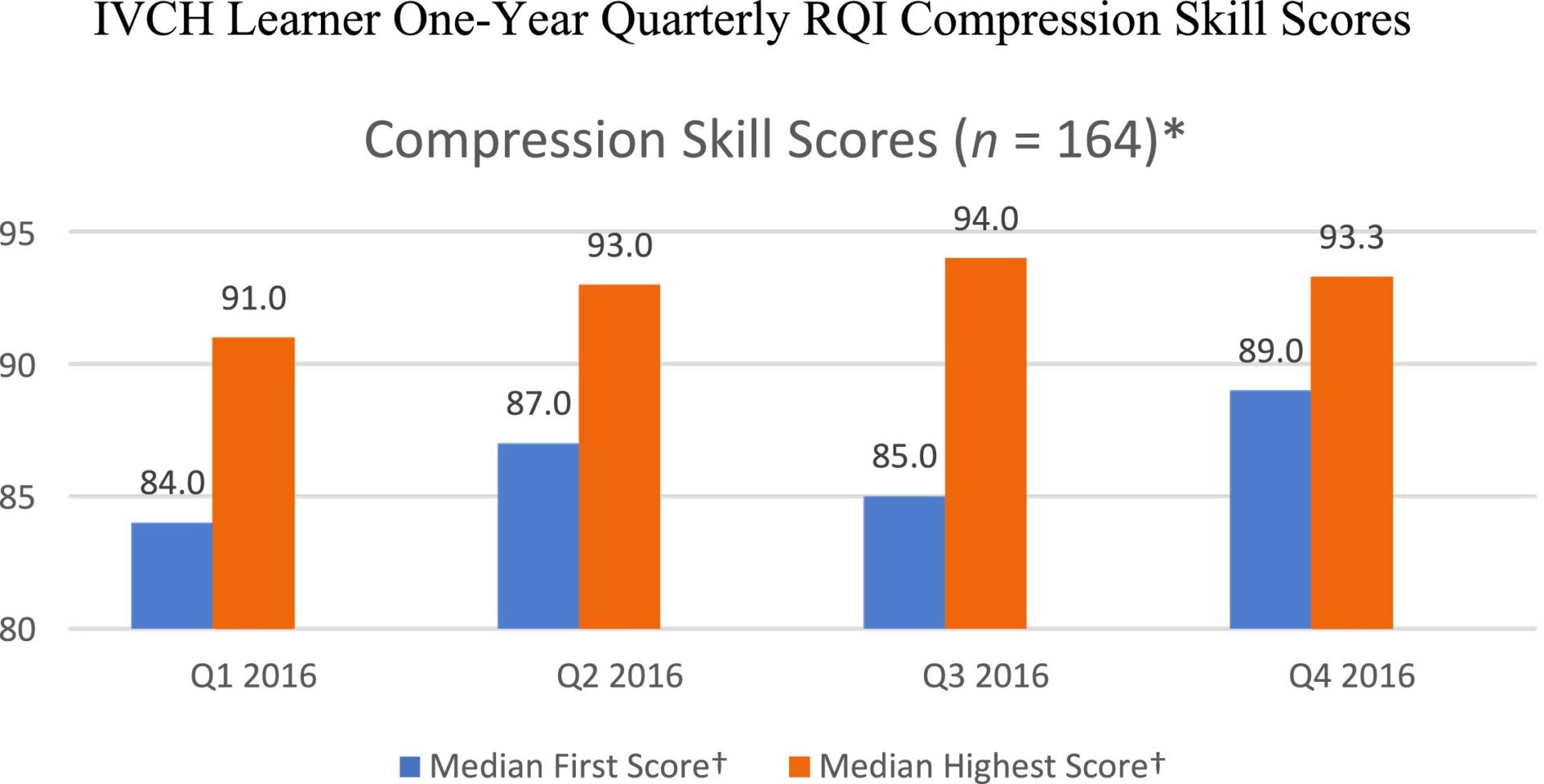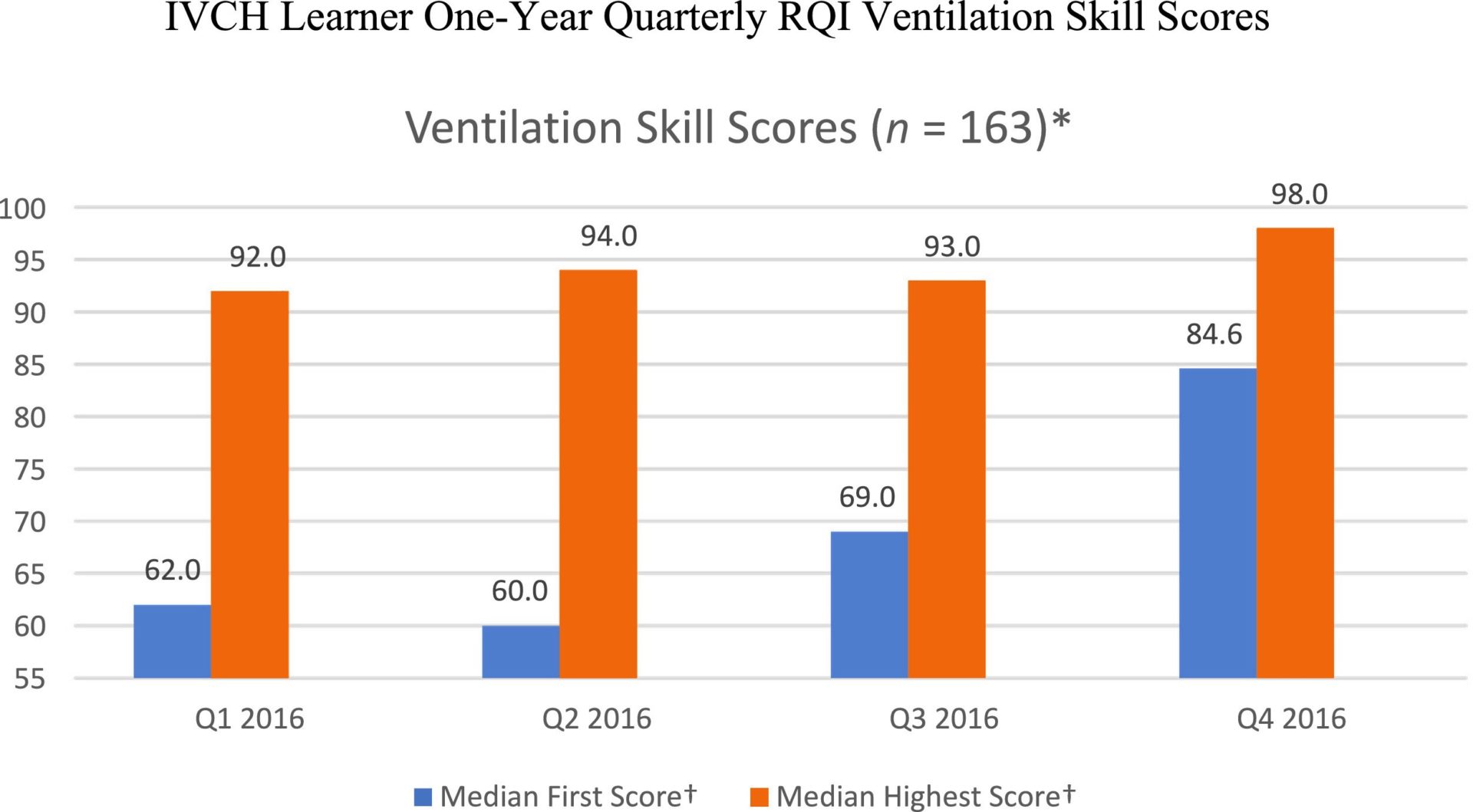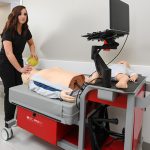What motivates you to do your best at your job each day?
I help hospitals save more lives.
As an Impact Manager for RQI Partners, I take great pride in my goal to ensure the success of hospitals that have adopted the RQI Program. The healthcare organizations I support have chosen to improve their resuscitation education program, allowing them to save more lives, reduce training costs and increase staff satisfaction – all this while creating a culture of resuscitation excellence and establishing a new standard of care within their organization.
It’s especially rewarding when these benefits are documented and quantified to share with others to drive change and life-saving potential. I was asked to participate in evaluating the impact of RQI at Illinois Valley Community Hospital (IVCH) in Peru, Illinois. IVCH is a 49-bed rural acute care facility south of Chicago that implemented RQI in 2016 and underwent a program implementation study to determine the impact of RQI on their resuscitation program. The results were recently published in The Joint Commission Journal on Quality and Patient Safety by Lorna Rozanski Dudzik, DNP, RN, APN, et al.
Community hospital experienced several benefits after implementing RQI
The study examined several areas of IVCH’s experience adopting the RQI Program, including staff psychomotor performance in CPR training, staff feedback on RQI, and a cost comparison of the RQI program versus traditional BLS training expenses. Results were overwhelmingly positive:
- CPR performance improved significantly for both compressions and ventilations
- Staff reported high satisfaction with the RQI program
- RQI cost 47.4% less than traditional instructor-led BLS training


As the Impact Manager for IVCH, the study results were not a surprise to me. I have spent a lot of time at IVCH, from their initial evaluation of RQI to the present, working closely with staff, providing best practice, and optimizing their utilization of the RQI program.
Study revealed opportunities for improvement
An area that has always presented a challenge with RQI data is the lack of baseline measurements to compare to the quarterly skills assessments in RQI that are administered with feedback. I am excited that future research will have baseline measurement given that RQI 2020 has incorporated initial and follow-up baseline measurements as part of the curriculum. This will help alleviate the primary limitation to this study.
The other limitation of note is compliance. To date IVCH has a compliance rate of 95.7% in RQI, meaning that percentage of assigned activities have been completed. Policy modification and staff satisfaction and the impact of RQI on hospital culture are all factors that have a positive impact on compliance over time.
Lastly, rural institutions, such as IVCH, often don’t have the volume of cases to effectively track IHCA outcomes. Partnering RQI with programs like the American Heart Association’s Get With The Guidelines Resuscitation will allow them to more effectively benchmark with larger facilities with higher case volumes. Additionally, RQI provides IVCH with a means to monitor performance and ensure high quality CPR is delivered. The ability to provide relevant data on CPR performance represents one of the most rewarding aspects of my job.
2020 American Heart Association CPR & ECC Guidelines released on October 21, 2020
The American Heart Association (AHA) recently released the official 2020 AHA Guidelines for CPR and ECC, along with the simultaneous introduction of the new AHA Digital Resuscitation Portfolio, including the new RQI 2025 program. As members of the RQI Community, IVCH benefits from immediate access to program updates and science changes from the AHA. IVCH also has free access to the new AHA Science In-Service Course that highlights the most significant updates to science and guidelines recommendations. We look forward to the continued success and lifesaving impact of RQI at IVCH.








